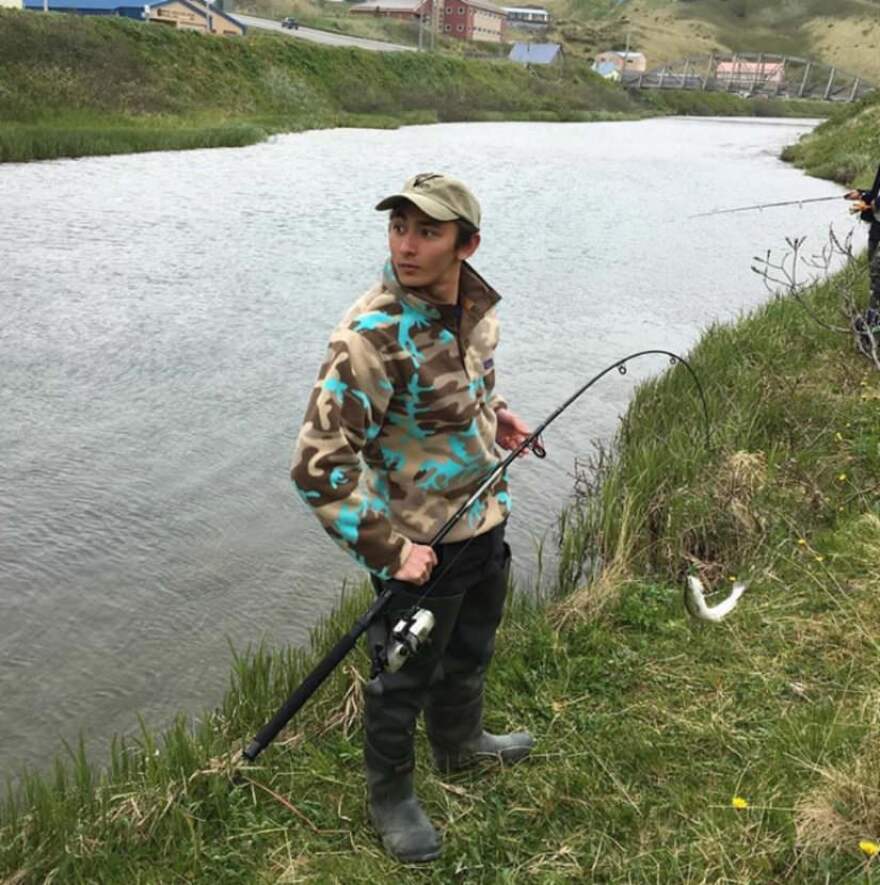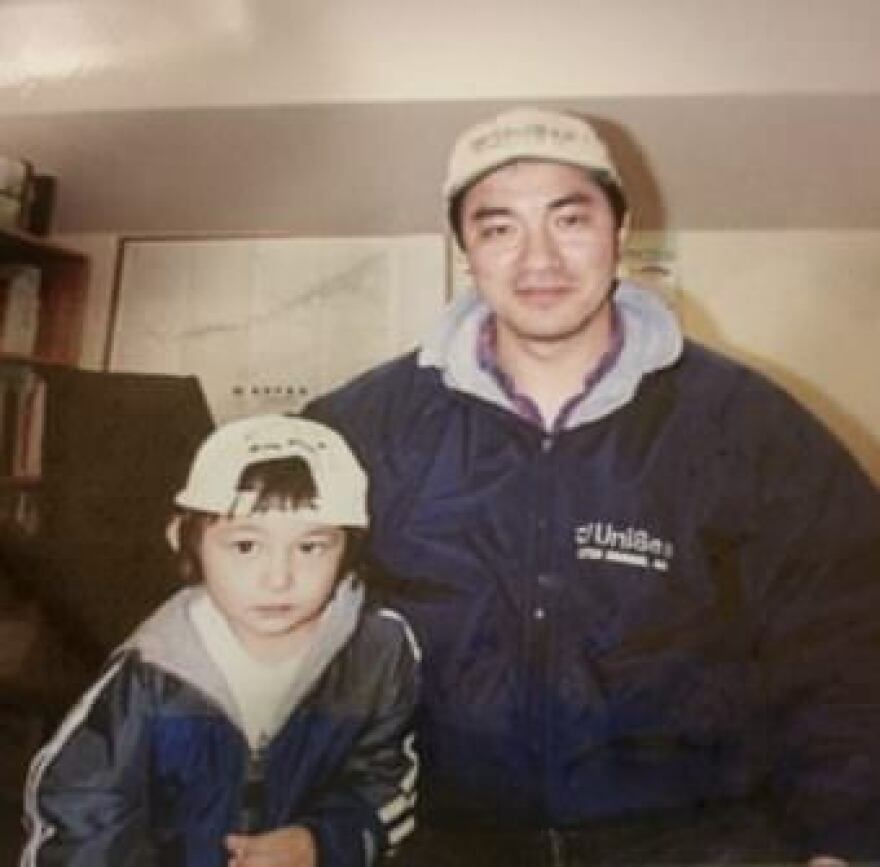Across the state, there’s a cohort of young Alaskans raising awareness for the rapidly changing Arctic environment. Cade Terada is one of 22 Arctic Youth Ambassadors. Growing up in Unalaska, America’s largest fishing port, he was immersed in the seafood industry.
Terada looks like a young, hip politician. Hair gelled back, the 18-year-old sports a grey quarter zip and khaki’s with an earring and a tattoo peeking out from under his sleeve.
He graduated from high school early, back in December.
You might not guess the role fishing has played in his life. Terada’s father grew up in a small town in Northern Japan and the best way to make money was fishing.
“He had to drop out of school in the ninth grade because his family was quite poor at the time,” Terada said. “So, he’s been working in fishing ever since, which is approximately 40-plus years.”
What did he think of fishing as a child?
“I really enjoyed it,” Terada said. “I really enjoyed looking in the tide pools with all the hermit crabs. I thought it was really cool looking at fish. I don’t know what it was about it, but it was an exciting opportunity to see what was out there, what could we catch.”
At what point did he realize Unalaska was pretty unique in the amount of resources it has?
“I kinda started realizing it back when I was beginning my high school career,” Terada said. “It didn’t really hit me that maybe 90 percent of my class has someone working in the fishing industry. My history teacher would always talk about how this town would be a ghost town if we didn’t have fisheries and that really got me thinking that everything is dependent on the fisheries where I’m from.”
Becoming an Arctic Youth Ambassador was a stretch for Terada. He didn’t really excel in high school.
“There’s a lot of other kids like me that have the mindset that if they have a low GPA they aren’t going to be able to do much,” Terada said. “I want to let people know if you have a low GPA that doesn’t mean anything … With this ambassador program I’ve had to opportunity to go to Greenland (and) Canada. I’ve met the prime minister of Canada, Justin Trudeau. I’ve met with countless government officials. That’s not something you’d expect from a kid with a 2.6 GPA.”
Terada has been passionate about protecting the environment for as long as he can remember. He got his start with Alaska Youth for Environmental Action. After a youth organizing summit, he was encouraged to apply to the Arctic Youth Ambassador program.
For Terada, convincing people to care about the environment is simple. He puts it in perspective.
“A lot of people I meet like sushi. And I come from the place that’s the number one fishing port in the nation, so if you like crab, if you like eating fish, you like eating any of this you better take care of the environment,” he said. “People are like ‘Wow, I really like my caviar and if I don’t care about the environment there’s going to be no more caviar or lobster.'”
At only 18, Terada feels like he’s already making a difference.
Next up is college where he’s planning to pursue degrees in political science and environmental studies. Then, he wants to return to Alaska to run for elected office.
After nearly two decades living in America’s largest fishing port, he thinks he’ll be able to bridge the gap between science and politics and continue to advocate for his community and the environment.


